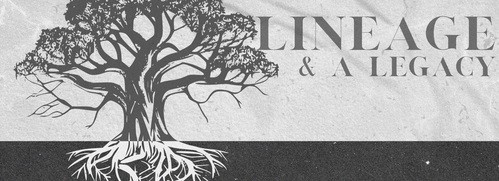Wednesday Devo

Scripture:
Joshua 2:8-13
8 Before the spies went to sleep that night, Rahab went up on the roof to talk with them. 9 “I know the Lord has given you this land,” she told them. “We are all afraid of you. Everyone in the land is living in terror. 10 For we have heard how the Lord made a dry path for you through the Red Sea when you left Egypt. And we know what you did to Sihon and Og, the two Amorite kings east of the Jordan River, whose people you completely destroyed. 11 No wonder our hearts have melted in fear! No one has the courage to fight after hearing such things. For the Lord your God is the supreme God of the heavens above and the earth below.
12 “Now swear to me by the Lord that you will be kind to me and my family since I have helped you. Give me some guarantee that 13 when Jericho is conquered, you will let me live, along with my father and mother, my brothers and sisters, and all their families.”
8 Before the spies went to sleep that night, Rahab went up on the roof to talk with them. 9 “I know the Lord has given you this land,” she told them. “We are all afraid of you. Everyone in the land is living in terror. 10 For we have heard how the Lord made a dry path for you through the Red Sea when you left Egypt. And we know what you did to Sihon and Og, the two Amorite kings east of the Jordan River, whose people you completely destroyed. 11 No wonder our hearts have melted in fear! No one has the courage to fight after hearing such things. For the Lord your God is the supreme God of the heavens above and the earth below.
12 “Now swear to me by the Lord that you will be kind to me and my family since I have helped you. Give me some guarantee that 13 when Jericho is conquered, you will let me live, along with my father and mother, my brothers and sisters, and all their families.”
Commentary:
2:9 I know that the Lord has given you the land. Rahab shows a remarkable awareness of Israel’s history and of the Lord’s intention to give Israel the land of Canaan (cf. 1:2). Her confession is filled with the language and theology of the Pentateuch, especially Deuteronomy, and echoes Josh. 1:2. The narration itself does not clarify whether her confession implies spiritual conversion or simply recognition of the supreme power of Israel’s God, but her later integration into Israel (6:17, 25) favors a genuine conversion.
2:9 Rahab in her faith anticipates the salvation of Gentiles through faith (Gal. 3:6–9; Heb. 11:31; James 2:25).
2:10 In Genesis 15 the Lord promised Abraham that his descendants would one day inherit the land of Canaan, but not until the iniquity of the Amorites was full. Outside the Bible the Amorites are referred to as Martu (Sumerian for “westerner”) and Amurru (Akkadian). They are attested as early as the beginning of the third millennium b.c. Migrating westward and southward into Canaan, they were at their strongest in the middle of the second millennium b.c. and faded quickly thereafter. In biblical parlance, the term “Amorite” is variously used to connote the inhabitants of Canaan generally, and the inhabitants of the hill country specifically. Sihon and Og are not mentioned outside the Bible (see Numbers 21; Deuteronomy 3).
2:9 Rahab in her faith anticipates the salvation of Gentiles through faith (Gal. 3:6–9; Heb. 11:31; James 2:25).
2:10 In Genesis 15 the Lord promised Abraham that his descendants would one day inherit the land of Canaan, but not until the iniquity of the Amorites was full. Outside the Bible the Amorites are referred to as Martu (Sumerian for “westerner”) and Amurru (Akkadian). They are attested as early as the beginning of the third millennium b.c. Migrating westward and southward into Canaan, they were at their strongest in the middle of the second millennium b.c. and faded quickly thereafter. In biblical parlance, the term “Amorite” is variously used to connote the inhabitants of Canaan generally, and the inhabitants of the hill country specifically. Sihon and Og are not mentioned outside the Bible (see Numbers 21; Deuteronomy 3).
Questions:
- Through the family tree in Matthew 1, from Abraham to Jesus, we are left a legacy of FAITH. When Rahab heard about what God had done, she abandoned her own king and culture and responded in faith. Ruth left her home and culture and was faithful. To have faith in something is simply to live as if it's true. It means to put your trust in something or someone and remain loyal to it. The question for you isn't DO you have faith... the question is WHO or WHAT is your faith in? WHO or WHAT are you loyal to?
- It's one thing to SAY you have faith and to SAY you are loyal to God. But actions are louder than words. God sees through our words and intentions and he sees the state of our hearts. And what is inside of us usually works its way outside. What do your actions and choices say about who your faith is in?
Pray:
- That your faith would be in God alone.
- That your actions would prove it.
This Week's City 7:
Try to commit to memory!
3. Why did Jesus have to die on the cross? Since “all have sinned” and the “wages of sin is death,” Jesus had to die on the cross to pay the fine for my sin so I could be right with God.
(Romans 3:23, 5:8, 6:21-23, 2 Corinthians 5:21; Ephesians 2:1-6; Colossians 1:13-14, 21-22)
(Romans 3:23, 5:8, 6:21-23, 2 Corinthians 5:21; Ephesians 2:1-6; Colossians 1:13-14, 21-22)

No Comments